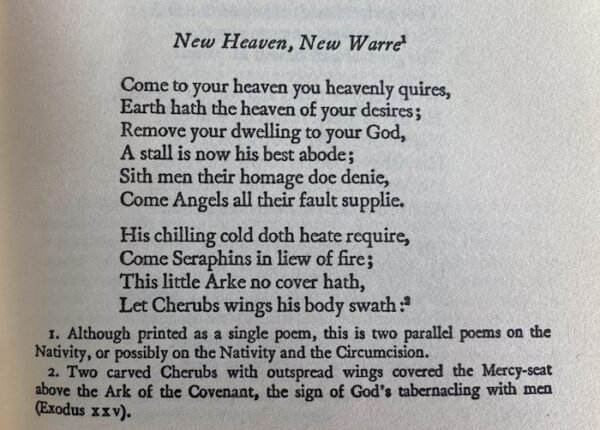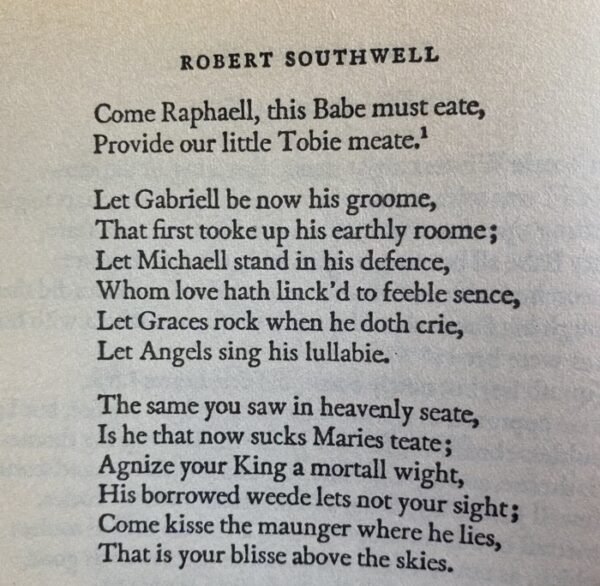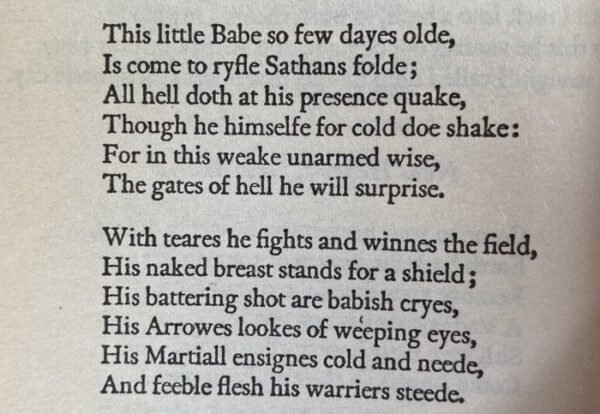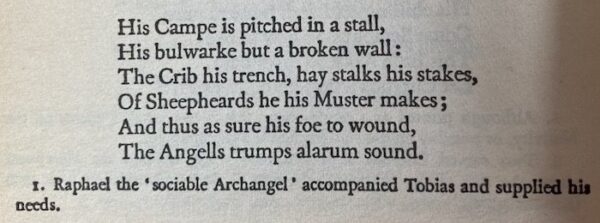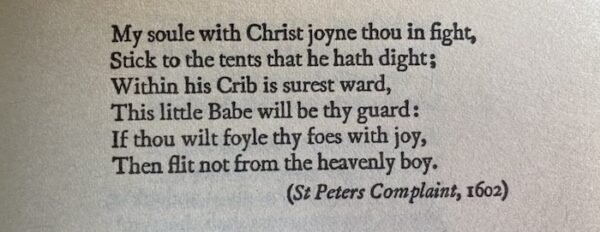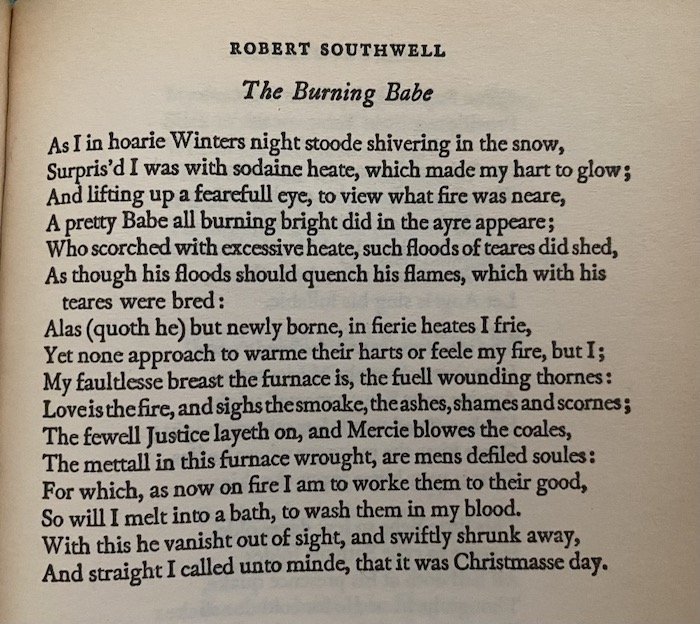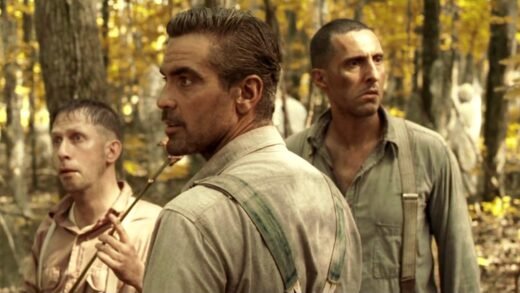How the poetry of Robert Southwell didst thou discover?
Been thinking about a project like that short-story month several years old. Had conceived 31 days of Nouvelle Vague or 31 days of Jean-Luc Godard. But you know, the Nouvelle Vague isn’t really my jam. More a giallo kind of person.
But now it’s looking like 31 days of “Sub Specie 16th-17th-Century-Aeternitates” … or some other clever title.
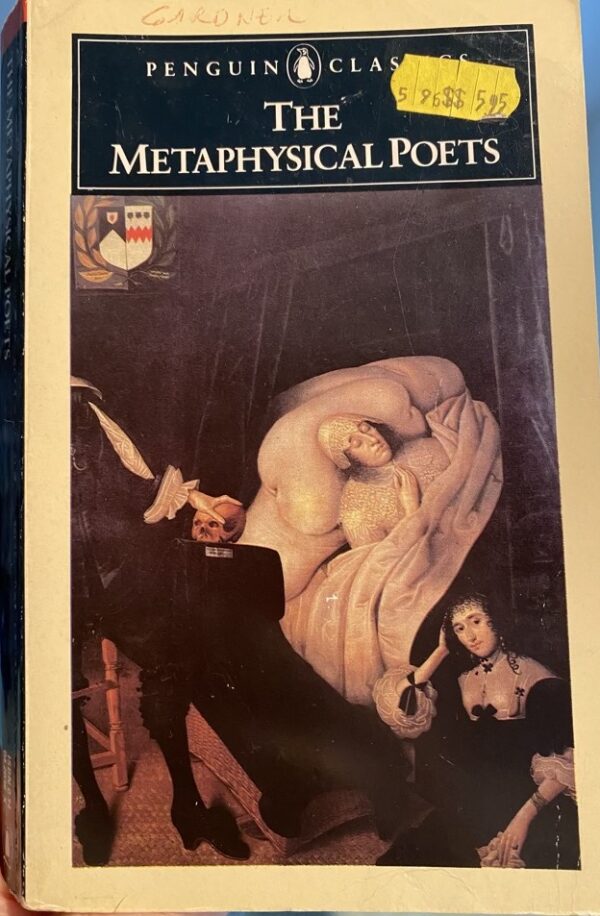
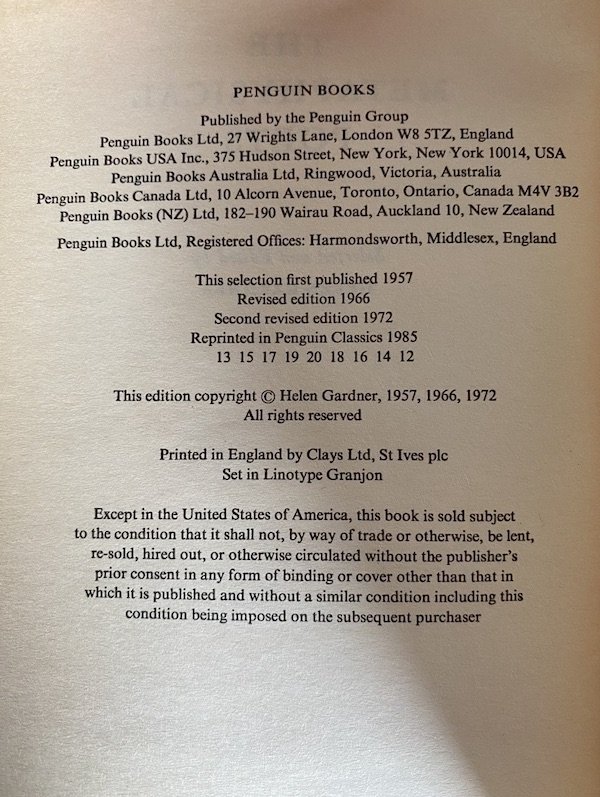

At any rate, it led me to Robert Southwell (1561-95) this rainy Saturday morning.
Three selections here, all of which I strongly recommend (and the only selections in The Metaphysical Poets, a collection by Dame Helen Gardner).
“The Burning Babe”
This is a very, very peculiar poem. When I taught and would chance on the representations of Christ, naturally I directed by students to the theological dispute that occurs in one of the early scenes of Talladega Nights (2006), in which our hero Ricky Bobby extols his affection for Christ as a baby, a view gainsaid by his wingman Cal Naughton Jr. It’s hilarious and prescient.
Never have I come across a representation of the baby Jesus like this:
As I in hoarie Winters night stoode shivering in the snow,
Surpris’d I was with sodaine heate, which made my hart to glow;
And lifting up a fearefull eye, to view what fire was neare,
A pretty Babe all burning bright did in the are appeare;
Who scorched with excessive heate, such floods of teares did shed,
As though his floods should quench his flames, which with his teares were bred:
Alas (quoth he) but newly borne, in fierie heates I frie,
Yet none approach to warme their harts or feele my fire, but I;
My faultlesse breast the furnace is, the fuell wounding thornes:
Love is the fire, and sighs the smoake, the ashes, shames and scornes;
The fewell Justice layeth on, and Mercie blowes the coales,
The mettall in this furnace wrought, are mens defiled soules:
For which, as now on fire I am to worke them to their good,
So will I melt into a bath, to wash them in my blood.
With this he vanisht out of sight, and swiftly shrunk away,
And straight I called unto minde, that it was Christmasse day.
“Marie Magdalens Complaint at Christs Death”
Love the archaic spellings and grammar.
Like in “The Burning Babe,” here Southwell again encourages the mind’s eye to envisage Mary Magdalene before Christ’s cross in order to observer her pathos. It’s fascinating because it overturns the sense attached to the concept of life.
As well, for pagan me, the novelty of a view of a life without Christ is stark, surprising. For what does Christ mean if he is not a presence that cannot be stripped from us.
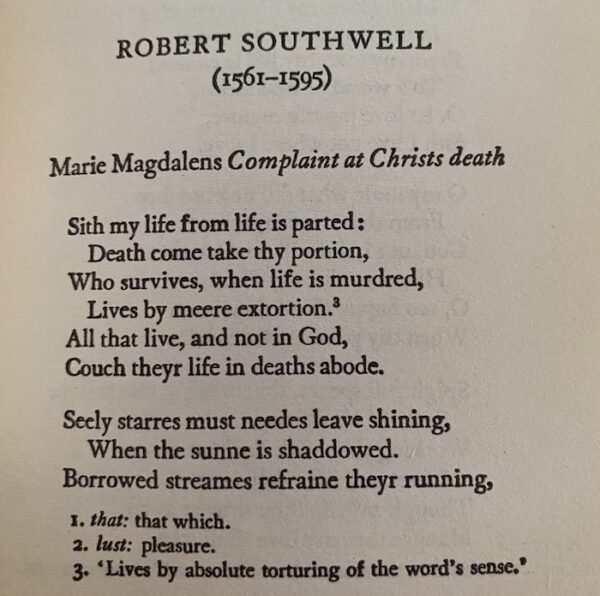
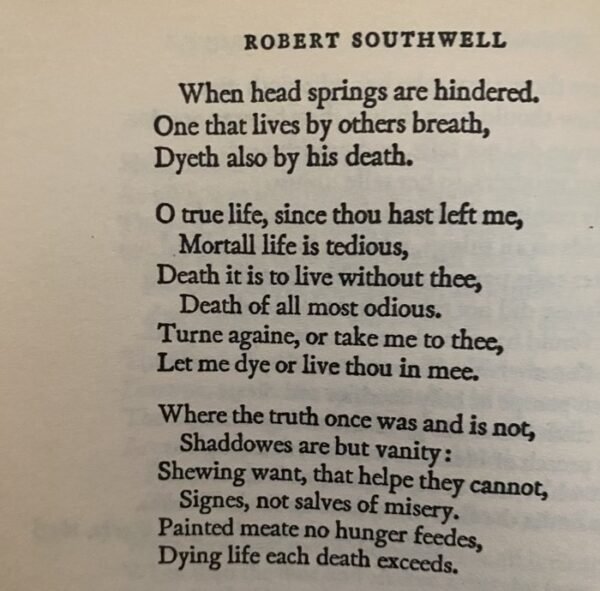
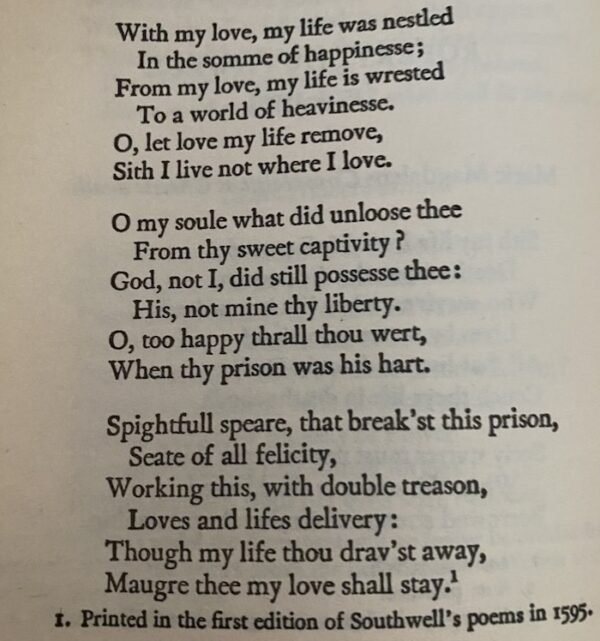
Do not overlook note 3 from the first image, which I must believe is Gardner’s comment. So Gardner doesn’t care for Southwell or just this line. I’m guessing just this line.
“New Heaven, New Warre”
I know little about weak ontologies, having not really sallied that direction in my philosophical research. But I am a little curious about them. I guess I sometimes think, isn’t that Hegel’s point in his account of the incarnation?
For what little I know, this poem by Southwell is kind of an exemplar. But the perennial question is, WRBA? Would Ricky Bobby Agree? Sadly, I do not think Ricky Bobby is prepared for the logic of weak theology. He loves the fragile baby Jesus, but does not appreciate that fragility as a source of … strength?
